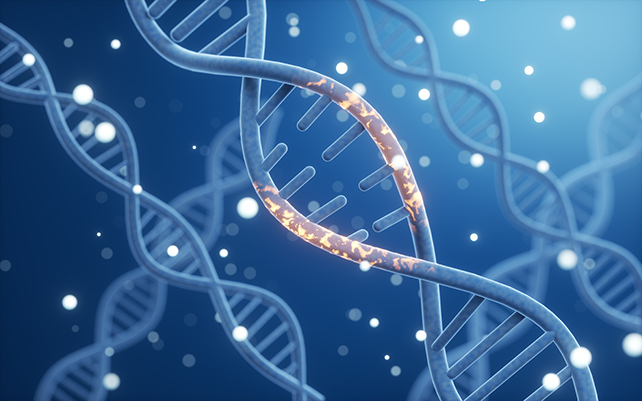Spotting cancer early can significantly improve the chances of recovery, and US researchers have shown that blood biomarkers may reveal tumors more than three years before a diagnosis is made.
The key lies in tiny fragments of genetic material shed by tumors. If a suitable analysis detecting these DNA signatures in the bloodstream can be rolled out at scale, it means a reliable way of catching cancer much earlier.
"Three years earlier provides time for intervention," says Yuxuan Wang, an oncology researcher at Johns Hopkins University in Maryland. "The tumors are likely to be much less advanced and more likely to be curable."
The team analyzed blood samples from 26 participants in a wider health study, who were diagnosed with cancer within six months of the sample collection. These samples were compared with blood taken from 26 other individuals who didn't develop cancer.
Technically, the test looked for circulating tumor DNA, or ctDNA. Using a combination of algorithms and multiple cross-checks, modifications known to be linked to tumors can be spotted, even though they're rare.
For eight of the 52 study participants, cancer was flagged by the multi-cancer early detection (MCED) test put together by the researchers – that means nearly 31 percent of those who got cancer were picked up by the blood analysis.

Older samples from 3.1-3.5 years earlier were available for six of those eight people, and of those six, cancer could be detected in four individuals. The same DNA fragments from tumors had already begun to appear, being found at levels up to nearly 80 times lower than those detected by the MCED test.
However, there's still plenty of work to be done. The further the samples go back in time, the lower the levels of detectable ctDNA: if we're to spot cancer up to three years in advance, much more sensitive blood tests need to be developed.
"This study shows the promise of MCED tests in detecting cancers very early, and sets the benchmark sensitivities required for their success," says Bert Vogelstein, an oncology researcher at the Ludwig Center at Johns Hopkins.
Scientists are doing fantastic work at identifying ways to spot cancer early, including through blood tests. However, getting them successfully through trials and approved by regulators remains a challenge.
Even with the hurdles ahead, there are reasons for optimism: each new study showing early cancer diagnosis adds to our overall knowledge and understanding of how cancer gets started, and how it can be identified at earlier stages.
Add to that the progress that's being made in terms of cancer treatments – including treatments capable of attacking multiple cancer types – and there are good reasons to believe that survival rates can continue to rise.
"Detecting cancers years before their clinical diagnosis could help provide management with a more favorable outcome," says Nickolas Papadopoulos, an oncology researcher at the Ludwig Center.
"Of course, we need to determine the appropriate clinical follow-up after a positive test for such cancers."
The research has been published in Cancer Discovery.